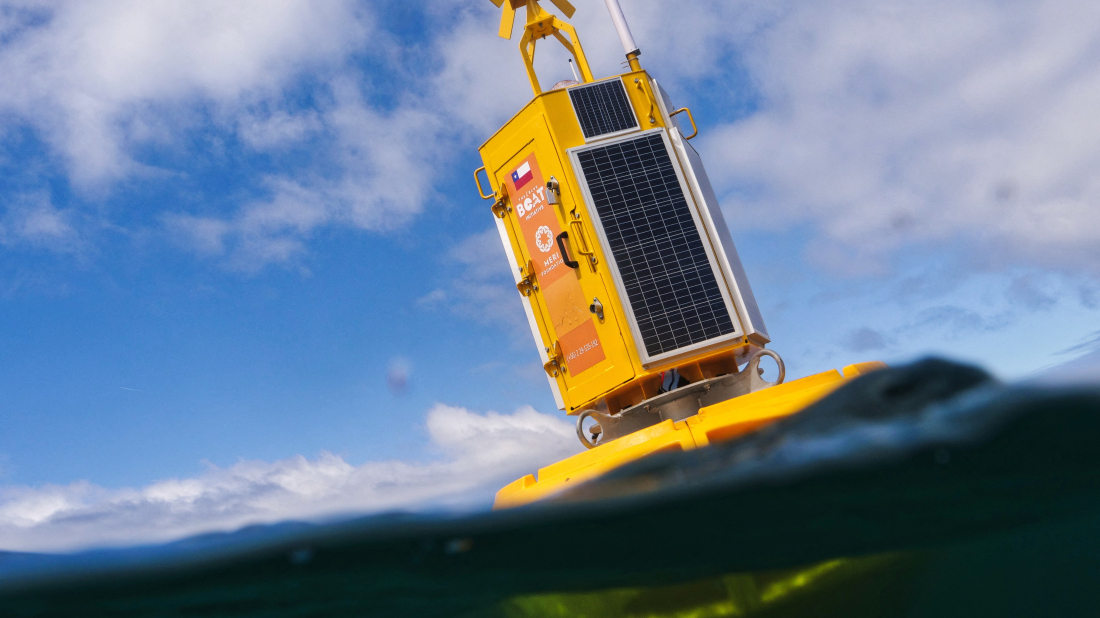Kazakhstan vows to fast-track AZAL crash investigation amid rising diplomatic tensions
Kazakhstan has vowed to speed up its investigation into the Azerbaijan Airlines (AZAL) crash near Aktau, as mounti...

resident Donald Trump’s administration is facing mounting criticism from scientists, maritime professionals, and lawmakers after a leaked budget memo revealed plans to eliminate all federal funding for the Integrated Ocean Observing System (IOOS).
Integrated Ocean Observing System (IOOS) — a critical ocean monitoring network vital to navigation safety, hurricane tracking, and coastal forecasting.
The proposed cut, part of a broader $2.5 billion reduction to the Department of Commerce for the 2026 fiscal year, would zero out the IOOS’s $43.5 million annual budget, effectively dismantling a nationwide system that has taken over two decades to build.
The IOOS includes 11 regional associations covering U.S. coastal waters, the Great Lakes, Caribbean, and Pacific territories. It operates a network of buoys, radar systems, and autonomous underwater vehicles to collect real-time data on wave conditions, currents, sea level, and water quality.
“It’s the last thing you should be shutting down,” said Captain Ed Enos, a harbor pilot in Hawaii. “There’s no money wasted. Right at a time when we should be getting more money to do more work to benefit the public, they want to turn things off.”
The funding threat comes despite bipartisan support for expanding IOOS. A Republican-led bill in the House Natural Resources Committee calls for increasing IOOS funding to $56 million annually from 2026 through 2030, underscoring internal divisions within the GOP over science and environmental priorities.
Experts warn that eliminating IOOS could leave dangerous blind spots in navigation safety, tsunami and hurricane early warning systems, and climate research. “Without those measures, we frankly won’t know what’s coming at us. It’s like turning off the headlights,” said Jack Barth, an oceanographer at Oregon State University.
The IOOS cut aligns with broader reductions targeting scientific agencies. Earlier this year, a separate memo outlined plans to cut NOAA’s budget by 27%, including a 74% reduction to its Office of Oceanic and Atmospheric Research. Reports also indicate that approximately 700 NOAA employees have been dismissed in recent months.
Observers say these moves echo elements of Project 2025, a conservative policy roadmap that describes NOAA as a “main driver of the climate change alarm industry.”
The global scientific community is also expressing concern. “This organization supports globally relevant data services and research that underpin almost all aspects of present ocean and Antarctic science,” said Craig Stevens, a marine scientist at the University of Auckland.
NOAA officials have declined to comment, stating that they do not conduct “speculative interviews.” However, scientists and maritime workers dependent on IOOS continue to warn that cutting the system would jeopardize public safety, disrupt weather forecasting, and undermine essential research efforts.
The Kremlin is utilising the recent United States and Israeli military strikes on Iran to validate its ongoing war in Ukraine. Russian officials are pointing to the escalation in the Middle East as evidence that Western nations do not adhere to international rules.
Saudi Arabia’s state oil giant Saudi Aramco closed its Ras Tanura refinery on Monday following an Iranian drone strike, an industry source told Reuters as Tehran retaliated across the Gulf after a U.S.-Israeli attack on Iranian targets over the weekend.
The Middle East crisis intensifies after the deadly attack on the compound of the Supreme Leader of Iran Ali Khamenei on Saturday that killed him, other family members and senior figures. Iran has launched retaliatory strikes on U.S. targets in the region.
U.S. President Donald Trump said the U.S. military has enough stockpiled weapons to fight wars "forever"; in a social media post late on Monday. The remarks came hours before conflict in Iran and the Middle East entered its fourth day.
Türkiye raised its security level for Turkish-flagged vessels in the Strait of Hormuz to Level 3 on Sunday (2 March). The development follows Iranian restrictions on shipping after U.S. and Israeli strikes and confirmation of Supreme Leader Ali Khamenei’s death.
Strikes across the Middle East are intensifying, fuelling travel disruption, driving up global energy prices and forcing diplomatic missions to shut their doors as tensions continue to rise.
U.S. President Donald Trump has said the United States has a “virtually unlimited supply” of munitions and is capable of sustaining military action indefinitely, as the conflict with Iran entered its fourth day.
The United Nations has called for an investigation into a deadly attack on a girls’ primary school in Iran, which Iranian officials say has killed more than 100 children. The U.S. has said its forces “would not” deliberately target a school.
U.S. first lady, Melania Trump chaired a UN Security Council meeting on children and education in conflict on Monday (2 March), a move criticised by Iran as hypocritical following U.S. and Israeli strikes that triggered a UN warning about risks to children.
Start your day informed with AnewZ Morning Brief. Here are the top news stories for the 3rd of February, covering the latest developments you need to know.
You can download the AnewZ application from Play Store and the App Store.

What is your opinion on this topic?
Leave the first comment